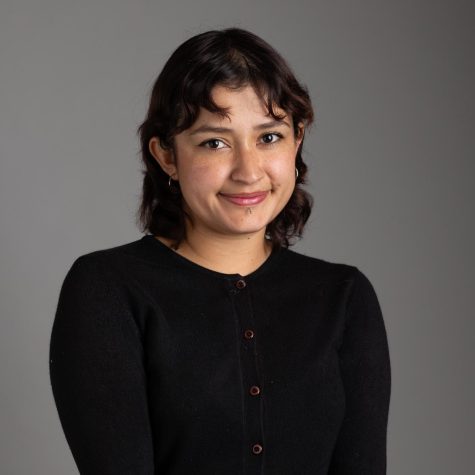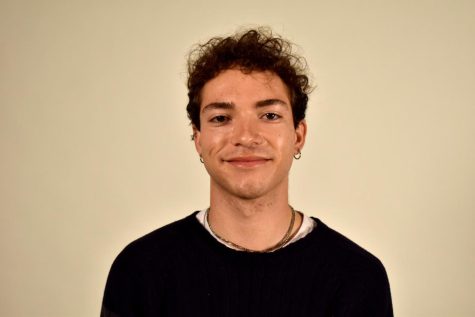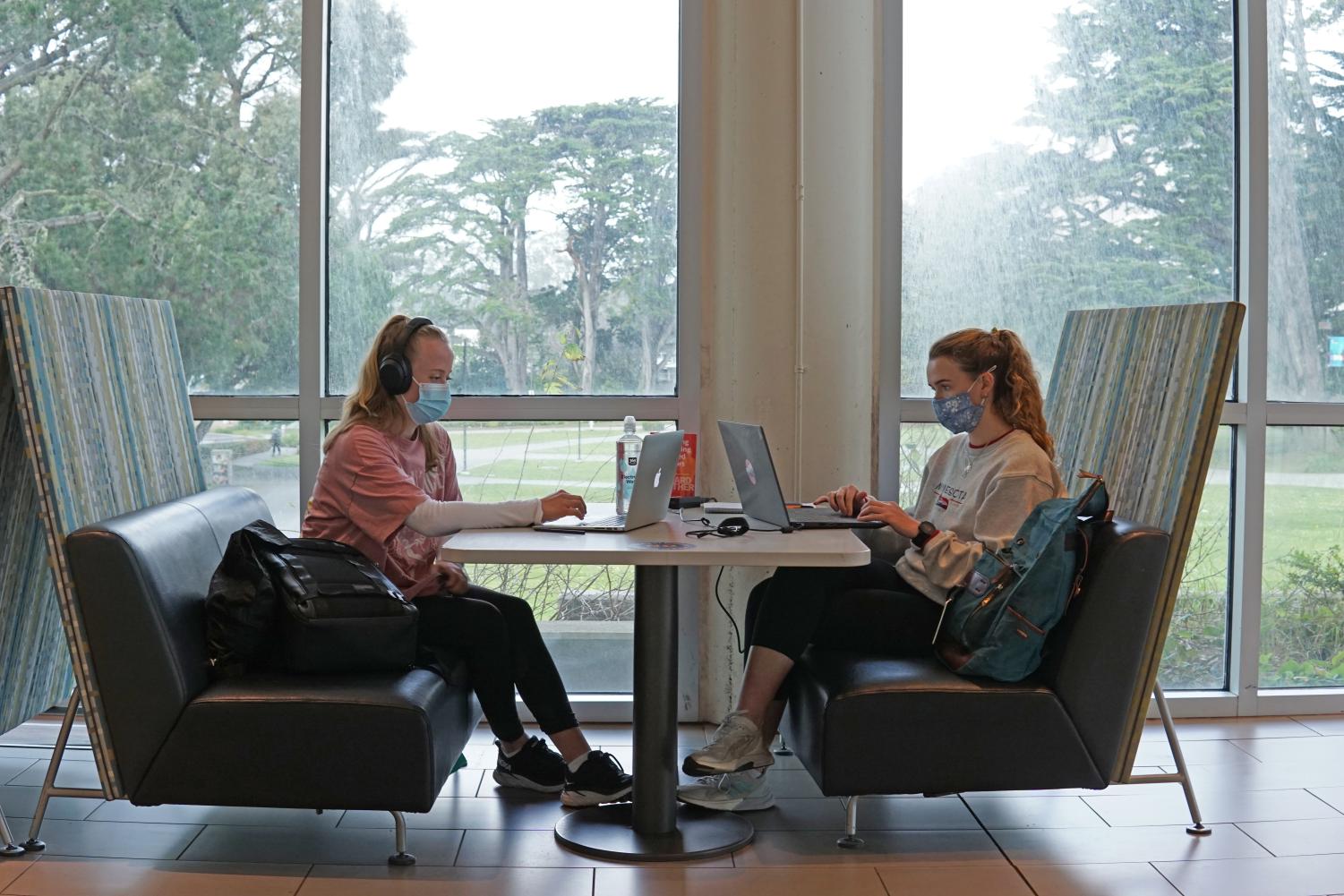



Amid fear of omicron, students think that in-person education will not resume after the first three weeks of online instruction
Jan 24, 2022
After a successful in-person fall semester, SF State students looked forward to continuing their classes on campus this spring.
But on Jan. 6, SF State President Lynn Mahoney announced in an email that instruction would temporarily be moving to remote modalities. A combination of in-person and remote services are planned to resume on Feb. 14.
SF State junior Trevor LeMay continues to work on campus despite classes being conducted via Zoom.
“[I’m] not too happy about it,” LeMay said. “I work here, so I literally have to come to campus to log in online at my job.”
A music major, he said that in-person instruction is a better way to learn because it creates a more tactile experience.
SF State initially transitioned to online learning in March 2020 as COVID-19 cases surged in San Francisco. The campus closed for the remainder of that semester and the Fall 2020 semester.
In Mahoney’s email announcement, however, she assured students that this temporary closure will not be the same.
“Our student-athletes remain in competition. Campus facilities such as the J. Paul Leonard Library, the Mashouf Wellness Center, Cesar Chavez Student Center and most administrative buildings remain open,” she said. “And we will continue to offer COVID testing and booster clinics on campus.”
SF State freshmen Ari Burnett and Abbey Cox sat outside of Cafe Rosso as they discussed their reservations for the impending semester. While Mahoney hopes for physical learning to resume, Cox thinks that the campus will remain closed.
“I think we should do what we can to help stop COVID-19,” Cox said. “It’s just kind of the same where things are going to be closed, I don’t know if it’ll open up again.”
In an interview with Blue Star Families on Jan. 19, director of the National Institute of Allergy and Infectious Diseases Anthony Fauci predicted that the United States will have reached its peak of omicron during the beginning of February.
“It is very likely that most of the states in the country will have turned around with their peak and are starting to come down with regard to cases, and then, obviously, hospitalizations,” Fauci said.
As a COVID-19 test clinic employee, Burnett believes that omicron cases have decreased.
Studies of the sewage water in the Bay Area indicate that the amount of COVID-19 genetic material in the water peaked near — and have fallen since — the time SF State announced its transition back to remote learning.
“I encourage all students from the university to get tested because the sooner we can be boosted and vaccinated, the sooner we can all be in person,” Burnett said.

